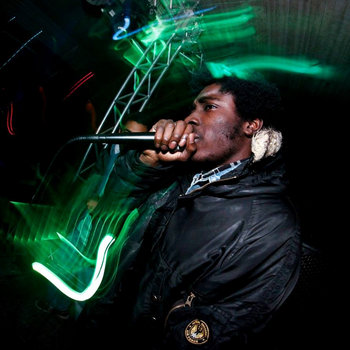
Rebetiko, the “songs of the underworld” or the “Greek Blues,” was a reaction to the rapid urbanization of Greece in the 19th century. Its themes of drugs, death, and dissatisfaction were considered untouchable in polite society until academics and socialites became curious in the 1950s and facilitated public debate about this style of folk music. Modern artists are now able to experiment with this once-taboo sound, bringing new life to its tales of migration and displacement.
Two distinct cultures provided the basis for rebetiko. First, there were the improvised ballads sung in hash dens, with roots in Ottoman village folk music, played by the distinct and fashionable mangas, weapon-carrying outlaws in slim suits and mustaches. These opium-fueled odes are where rebetiko gets its guttural raunch and its essential instrumentation—the bouzouki and the baglamas.
Rebetiko’s sound was also formed by the catastrophic results of the 1923 population exchange between Greece and Turkey, in which each nation attempted to solve sectarian conflicts via ethnic homogenization—exchanging Muslim residents of Greece for Christian residents of Turkey. The highly musical community of Orthodox Greeks in Turkey were brutally turned into refugees in a homeland that was not able to house them. The sound of smyrneika, the Greek cabaret tradition born out of lively cultural conversation between Turkish, Armenian, and Jewish refugees in Greece—along with the torment of displacement and confinement to the ghettos and jails of Piraeus—gave rebetiko its sense of longing.
The 1922–1932 period of rebetiko music is thought of as the first generation of the style, as the first recordings thereof were produced during this time. The migrants who kept sailing toward America were the first to record these infectious songs. Today, labels like Mississippi Records, Olvido Records, and Canary Records are doing a wonderful job of making rebetiko from this generation available in high-quality reissues.
Now, 100 years after the advent of recorded rebetiko, mutations of the sound are still fertile ground. Here is a list of non-traditionalists who are further developing the definition of rebetiko music for the present day.
Andy Moor & Yanis Kyriakides
Rebetika


Cypriot sound artist and composer Yannis Kyriakides teamed up with The Ex guitarist Andy Moor in the early 2000s to perform authentic versions of rebetiko songs. Five years later they had the idea to go back to the repertoire and perform them as electro-acoustic improvisations, similar to Eugene Chadbourne’s revolutionary take on country music, and the results are stunning.
“For me, rebetiko music is not just about Greek identity,” Kyriakides says. “There is a universality in the songs that speak to the immigrant soul, or sense of displacement…I think this speaks to us now because of the turbulence the society is going through. And finding a way to listen to the songs, again, in a new way, removed from the original historical context, gives us another perspective to reconnect to them.”
Negros Tou Moria
U SWAK


While rebetiko samples in Greek hip-hop aren’t new, what Negros Tou Moria brings to the table is formidable. A Greek born to Ghanaian parents who spent his first 10 years without legal documentation, his insistence on deep lyrics dissecting Greek history and Orthodoxy has been an intentional device to confirm his birthright to the detractors of his youth. Adding controversial Greek tropes such as wearing the fustanella, a potential symbol of nationalism and masculinity on stage as well as employing some seriously time-warping film clips, his stellar rise in Athens’s hip-hop scene is unquestionable.
Crash Normal
HYPNO REBETIKO


Jérôme Normal of French group Crash Normal was introduced to rebetiko while on tour with Athens psych-folk band Acid Baby Jesus. Having heard “the songs of A.Kostis, Markos Vamvakaris or even Yorgos Batis, the ones with a rough and hypnotic sound,” as he puts it, he was inspired to reproduce these sounds through the raucous reverb chamber synonymous with his albums.
For outsiders, it can be difficult to present Greek music back to its home country, as Normal did to an audience of locals on the island of Sifnos. “It made me very intimidated at first,” he says. “By the second song, one of them stood up and I thought: ‘OK, that’s it, they are all going to leave now!’ But instead of leaving, he started dancing! Not the sirtaki dance created for the tourists, the real one, slow, deep: the zeibekiko…I felt a great feeling that I was part of the culture and not only a French guy that covers rebetiko songs!”
Antonia Kattou
Sound Adaptions


On this sound art project by Cypriot-born Antonia Kattou, each piece is intended as a dissection of her family’s history and her own migration from Cyprus to Glasgow, as well as ruminations on the cyclical pattern of history using samples and field recordings. Her songs fit into the same themes of collective memory and amnesia as The Caretaker’s work. “Memory and nostalgia play a huge role in my music, especially with storytelling,” she says. “My grandmother was telling me stories from her early life—she was studying physical education in Athens, and the university never let them learn rebetiko dances. This memory has a personal quality to me.”
Kosmos G
Ta Deka Agapimena Tou Dmitri



T-Shirt/Apparel

Kosmos G’s solo project fuses rebetiko with the “space-age [sic] bachelor pad” orchestral pop sound of the ‘50s and ‘60s (as revived in the ‘90s by groups like Stereolab), a combination that only makes sense after you hear it. Kosmos G has spent over a decade playing accordion, violin, and bağlama in the Disciples of Markos, one of the longest-running traditional Rebetiko ensembles in the world. His second album, Ta Deka Agapimena Tou Dmitri, is based on a top 10 list of Greek rebetiko favorites compiled by the Oakland-based Fuzzy Mind label founder Dmitri Mavra.







